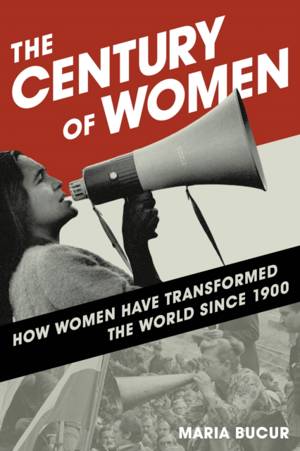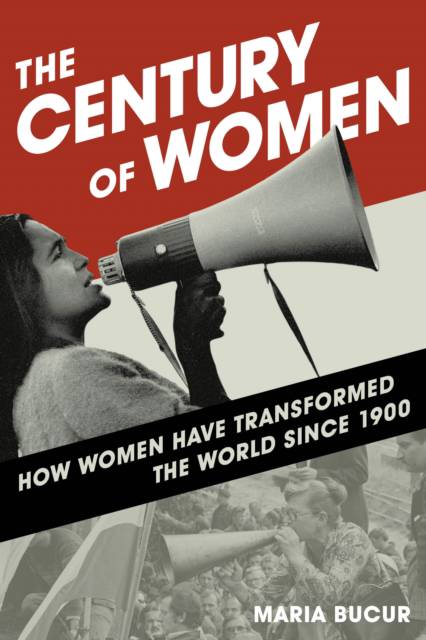
- Retrait gratuit dans votre magasin Club
- 7.000.000 titres dans notre catalogue
- Payer en toute sécurité
- Toujours un magasin près de chez vous
- Retrait gratuit dans votre magasin Club
- 7.000.0000 titres dans notre catalogue
- Payer en toute sécurité
- Toujours un magasin près de chez vous
The Century of Women
How Women Have Transformed the World Since 1900
Maria Bucur
Livre broché | Anglais
79,95 €
+ 159 points
Format
Description
This innovative text explores the unprecedented changes in the realms of politics, demography, economics, culture, knowledge, and kinship that women have brought about in the twentieth and twenty-first centuries. Global in reach, the book provides a comparative analysis of developments worldwide to show both progress as well as new tensions and forms of inequality that have emerged out of women's entry into politics, wage employment, education, and the production of culture. Beginning with suffrage and moving to participation in international movements--such as anti-war, labor, and environmental rights activism--Maria Bucur explores how women have transformed the operation of states and international institutions. She focuses on the radical demographic shifts since 1900 through the prism of changing practices in women's sexuality, from birth control practices to education. Examining the continuing economic gender gap around the world, Bucur highlights ways women have been both beneficiaries of new economic opportunities and participants in developing new forms of inequality. Considering the remarkable achievements of women in the areas of knowledge making and cultural production, the author shifts her gaze toward the future and what these changes mean in terms of gender norms and evolving kinship relations. She thus presents a new perspective on contemporary world history, centered on how women have become both the subjects and objects of seismic shifts in the political, social, and economic structures of societies across the globe.
Spécifications
Parties prenantes
- Auteur(s) :
- Editeur:
Contenu
- Nombre de pages :
- 242
- Langue:
- Anglais
Caractéristiques
- EAN:
- 9781442257399
- Date de parution :
- 05-04-18
- Format:
- Livre broché
- Format numérique:
- Trade paperback (VS)
- Dimensions :
- 152 mm x 226 mm
- Poids :
- 340 g

Les avis
Nous publions uniquement les avis qui respectent les conditions requises. Consultez nos conditions pour les avis.






